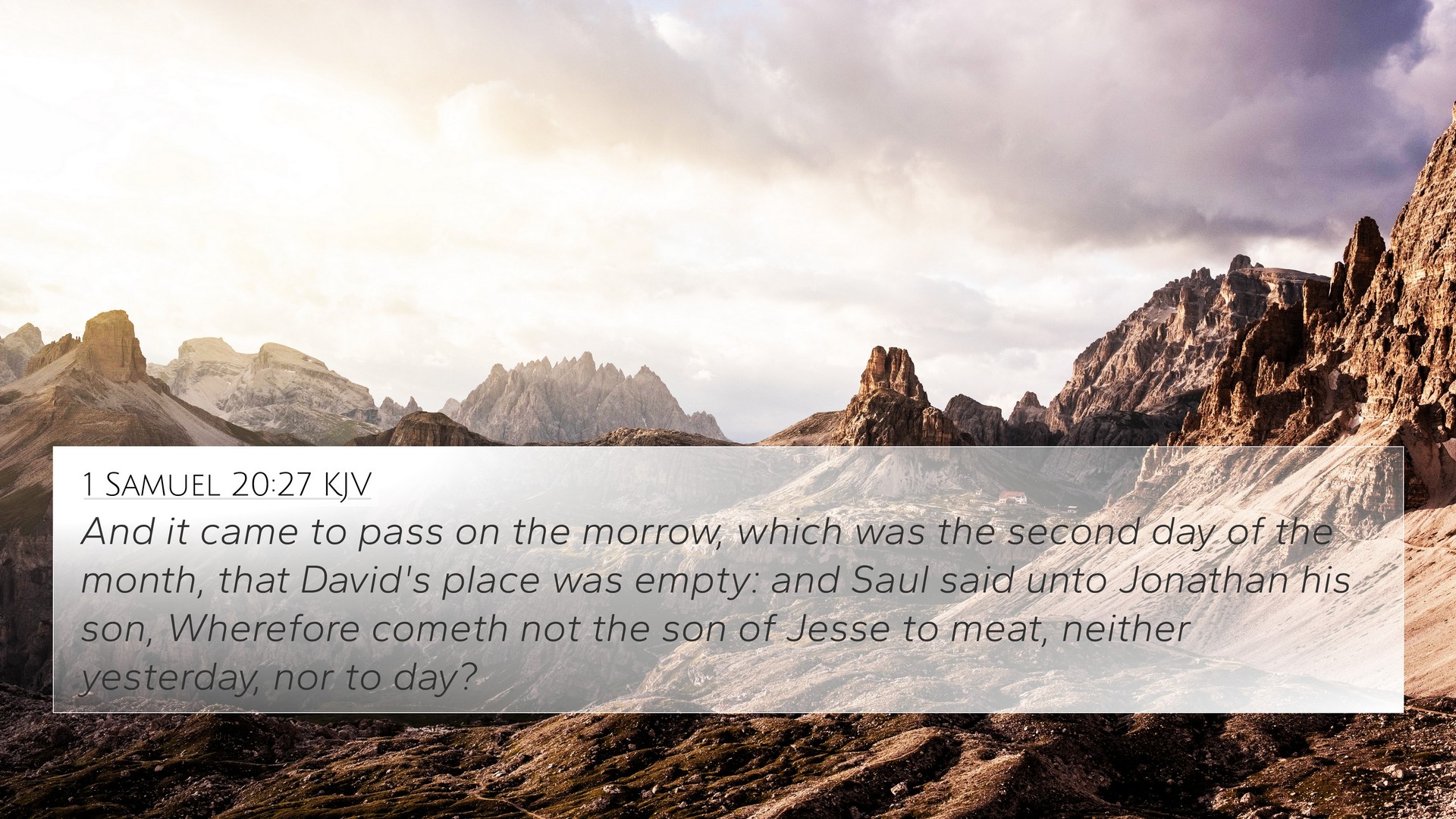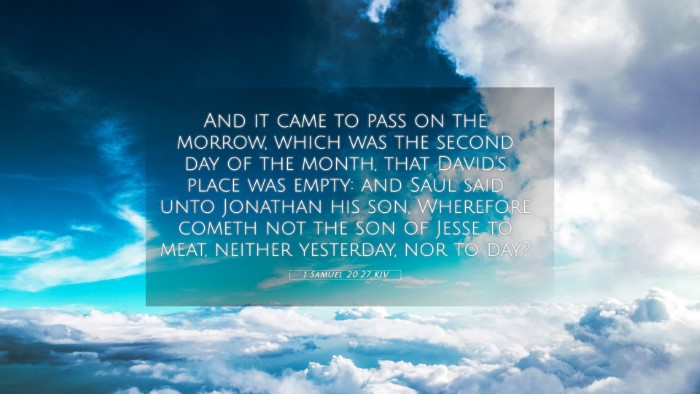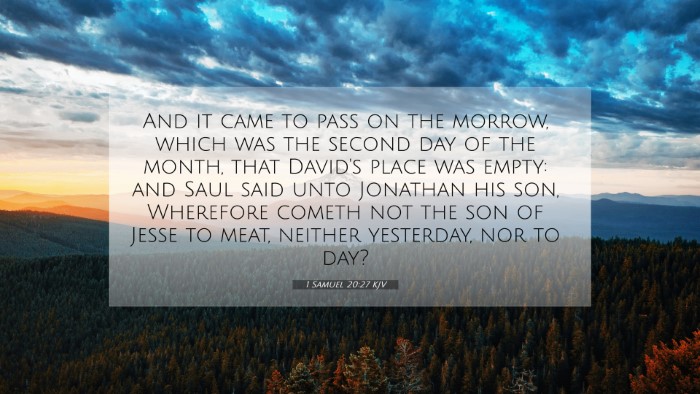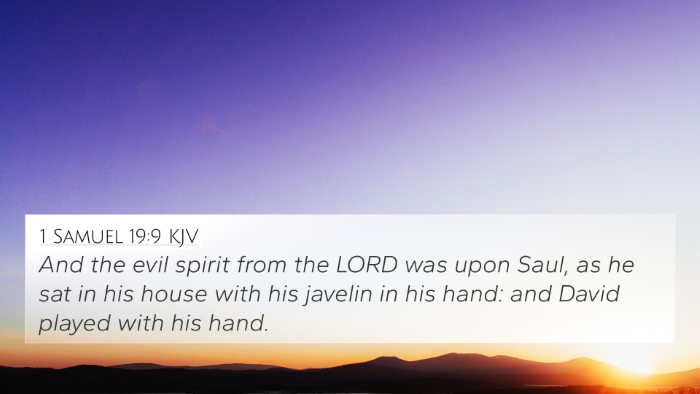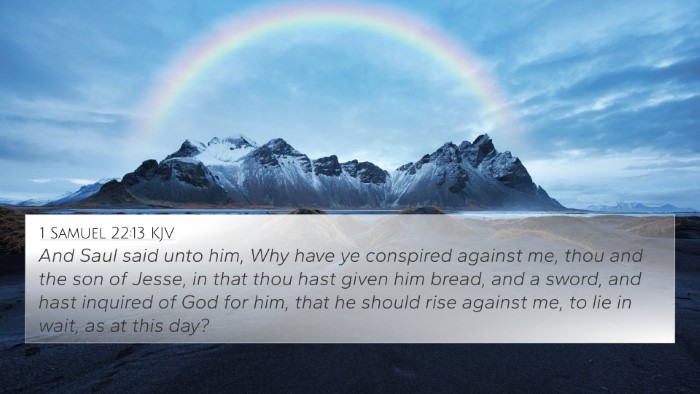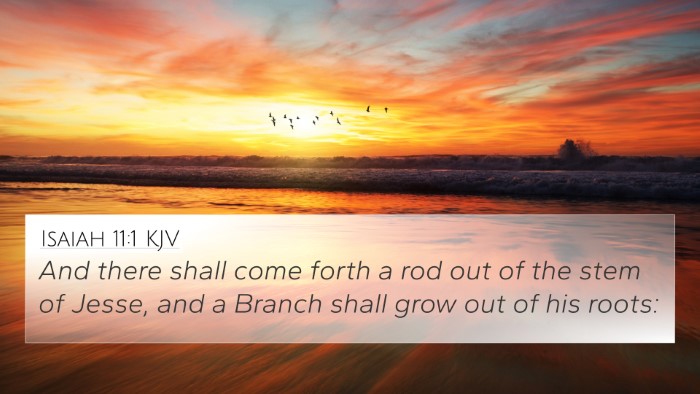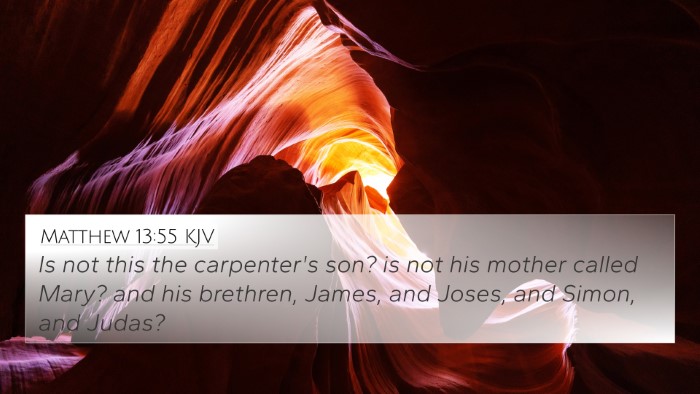Understanding 1 Samuel 20:27
Verse: "And it came to pass on the morrow, which was the second day of the month, that David's place was empty: and Saul said unto Jonathan his son, Wherefore cometh not the son of Jesse to meat, neither yesterday, nor to to day?" (1 Samuel 20:27, KJV)
Overview of the Context
This verse occurs within the narrative of David's growing conflict with King Saul. David has been anointed by Samuel as the future king of Israel, which creates tension with Saul, who fears losing his throne. In this particular moment, David is in hiding, and his absence from Saul’s table during the feast prompts Saul to inquire about him, revealing the strained dynamics between the characters.
Commentary Insights
-
Matthew Henry's Commentary:
Henry suggests that David's absence signifies his precarious situation. It emphasizes Saul’s awareness of David as a threat and portrays the escalating tension between the two. The inquiry about David's absence reflects the paranoia that has taken root in Saul's heart regarding David's rise to power.
-
Albert Barnes' Notes:
Barnes highlights Saul's increasing suspicion and jealousy towards David. He notes that Saul's query is rooted in a mix of concern and confrontation. The absence of David suggests not only a physical absence but a deeper symbolic absence of loyalty and trust between him and Saul.
-
Adam Clarke's Commentary:
Clarke points out that David's choice to avoid the feast is a strategic act of self-preservation. He underlines the complexity of relationships in this narrative, suggesting that Saul’s question signifies a deeper issue of betrayal and misunderstanding fostered by Saul’s own insecurities.
Key Themes and Lessons
-
Conflict and Loyalty:
The verse underscores the tension between personal loyalty and the burdens of leadership. David’s need to evade Saul speaks to the difficult choices leaders must sometimes make to protect themselves and their beliefs.
-
Trust and Betrayal:
This absence at the king's table also highlights themes of trust. The once-close relationship between David and Saul is now fraught with suspicion. Saul’s question set the stage for further conflict, illustrating how quickly trust can erode in power dynamics.
-
Divine Providence:
David’s situation may seem dire, yet it serves as a setup for God’s unfolding plan. The tension between divine anointment and human opposition is a recurring theme throughout Scripture.
Relation to Other Scripture
The connections between Bible verses become evident when considering this passage. Here are some significant cross-references that illuminate the themes present in 1 Samuel 20:27:
- 1 Samuel 18:5: This verse discusses David's success under Saul, which lays the groundwork for the jealous tension that follows.
- 1 Samuel 19:1: Saul's plot to kill David heightens the stakes of the narrative, emphasizing his paranoia.
- 1 Samuel 20:6: This verse reveals the pretext that David uses for avoiding the king’s banquet, showing his cunning nature.
- 1 Samuel 21:1-2: David's subsequent flight from Saul's court underlines his need to preserve his life.
- 2 Samuel 1:11-12: This passage provides context for David's mourning over Saul’s death, showcasing the nuanced relationship they shared despite the conflict.
- Psalm 34:19: David reflects on God’s deliverance amid troubles, which resonates with his plight during Saul’s pursuit.
- Hebrews 11:32-34: This New Testament passage speaks to the exemplary faith of those who faced persecution, paralleling David's experiences.
Tools for Bible Cross-Referencing
To deepen understanding of the connections amongst scripture, consider utilizing the following:
- Bible Concordance: An effective tool for locating specific terms and themes in the Bible.
- Bible Cross-Reference Guide: Aids in identifying related verses across both testaments.
- Cross-Reference Bible Study Methods: Techniques to trace themes and messages across different biblical narratives.
Conclusion
1 Samuel 20:27 serves as a poignant reminder of the relational complexities in the biblical narrative. It invites readers to explore the intertwining of human circumstances versus divine plans. Through cross-referencing, individuals can uncover deeper meaning and connections, enriching their spiritual understanding.
By examining similar passages, we can see how themes of conflict, loyalty, and divine purpose resonate throughout the Bible, providing a comprehensive look at the interconnectedness of scripture.
For Further Study
If you’re interested in exploring how this verse relates to others, consider asking:
- What verses are related to 1 Samuel 20:27?
- Find cross-references for David's challenges with Saul.
- How do 1 Samuel 20:27 and Psalm 34:19 connect?
